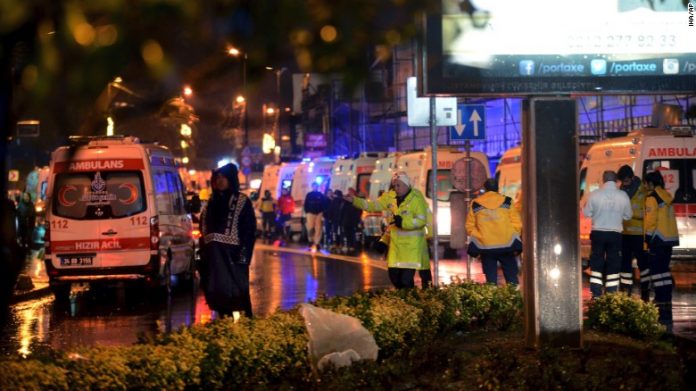
In Istanbul, you’re still more likely to die in an earthquake than in a terrorist attack.
It’s a sobering thought for visitors and residents alike given all that has recently happened in the city. The Islamic State’s New Year’s Eve attack on an Istanbul nightclub came on the heels of a series of brutal bombings over the past year. The attacks have left Turkish citizens deeply shaken and tourists increasingly hesitant to visit one of the greatest cities on earth.
But seismologists say a devastating earthquake in Istanbul remains an even greater danger. Even if it’s become a cliche that high-profile terrorism distracts us from more statistically significant threats, the disparity in Istanbul’s case is striking.
The city sits on an active fault line, and the rapid urbanization of the past 50 years means that millions of Istanbul residents live in hastily and cheaply constructed apartment buildings. Though estimates differ widely, many experts have warned that Istanbul has at least a 50 percent chance of suffering a massive earthquake in the next two decades. Given the city’s housing stock, a quake could kill over 50,000 people and leave another 500,000 without homes.
Mitigating the risks posed by a major earthquake is a herculean undertaking. Reinforcing critical infrastructure and residential buildings in vulnerable neighborhoods costs money, and enforcing building codes in the face of corrupt contractors takes political will. But both are crucial steps, and even limited efforts can save lives.
Seismologists regularly point out that earthquakes don’t kill people – buildings do. That’s why death tolls from earthquakes in poor countries like Haiti are so much higher than in similar earthquakes in California or Japan. Troublingly, most earthquake safety recommendations are designed for people living in well-built structures. In the absence of reliable advice, people in the most dangerous buildings are left to rely on potentially fatal misinformation.
The Turkish government has previously announced several campaigns to address the seismic risk Istanbul faces, though experts – perhaps inevitably – warn the plans are inadequate. And even with extensive precautions, a major earthquake would still take a devastating toll on Turkey as a whole.
The human cost would be massive, but such a trauma would also amplify the many other threats the country is facing. Turkey is fighting a two-front war against the Islamic State and the Kurdistan Workers’ Party (PKK). Its government responded to an attempted coup last summer with an authoritarian crackdown, leaving the country increasingly polarized and unstable. At the same time, Turkey is also dealing with a decline in tourist revenue and the cost of sheltering over two million Syrian refugees, further raising the stakes of any additional shock.
Geopolitics has already confronted Istanbul with a destabilizing mix of displaced people, economic turmoil and political instability. At any moment, geology could suddenly make all these challenges infinitely worse.
Special To The Washington Post · Nick Danforth

